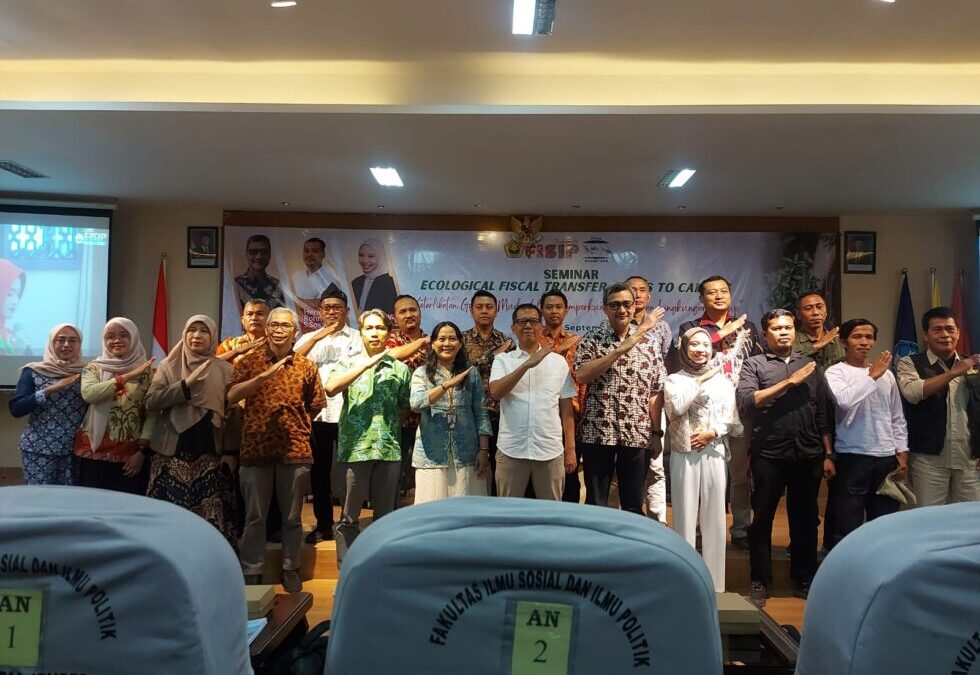JEMBER – The Department of Public Administration within the Faculty of Social and Political Sciences (FISIP) at Jember University (UNEJ), in collaboration with the Jakarta-based NGO Perkumpulan Pilar Nusantara (PINUS), successfully held a seminar titled “Ecological Fiscal Transfer Goes to Campus.”
The event, which focused on the theme “Youth Involvement in Strengthening Environmental Funding,” took place on Thursday, September 25, 2025, at the FISIP Jember University Auditorium, 2nd Floor. The seminar aimed to boost student awareness and insight into the importance of innovative funding schemes for environmental sustainability and the strategic roles they can play.
Rabin Ibnu Zainal, SE., M.Sc., Ph.D., Director of PINUS, served as the main speaker, emphasizing the urgency of youth engagement in environmentally conscious fiscal policy. In his presentation, Rabin explained that young people are not merely objects but crucial subjects in overseeing and ensuring the effective implementation of policies like the Ecological Fiscal Transfer (EFT). He stated that a solid understanding among the younger generation of instruments such as the Ecology-based Provincial Budget Transfer (TAPE) and the Ecology-based District Budget Transfer (TAKE) would be key to fostering local government accountability in allocating budgets for pro-environment programs.
The seminar also featured perspectives from two other speakers, Hermanto Rohman, S.Sos., M.PA., and Nurussyamsil Hidayah, S.Sos. They delved deeper into the challenges and opportunities of implementing environmental funding policies from public administration and social angles. The discussion session was highly interactive, with students showing great enthusiasm by posing critical questions about how they can contribute, ranging from research and advocacy to policy oversight at the local level.
Organizing this event underscores the commitment of the Public Administration Department, FISIP, UNEJ, to equip its students with knowledge relevant to contemporary issues. The collaboration with expert practitioners from PINUS Jakarta is expected to bridge the gap between academic theory and real-world practice. This aligns with the vision of producing graduates who are not only academically competent but also possess the sensitivity and capacity to become agents of change in sustainable development.
It is hoped that the “Ecological Fiscal Transfer Goes to Campus” seminar will be a catalyst for new initiatives among Jember University students. More than just a discussion forum, the event serves as an initial step in building a network among academics, practitioners, and young people concerned with the future of Indonesia’s environment. Equipped with better understanding, the youth are expected to be ready to take an active role in guarding and strengthening the commitment to environmental conservation funding in the future.

